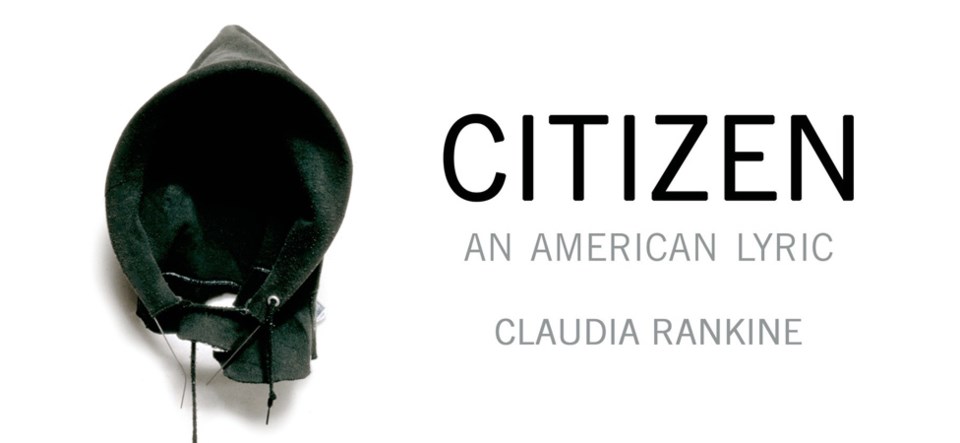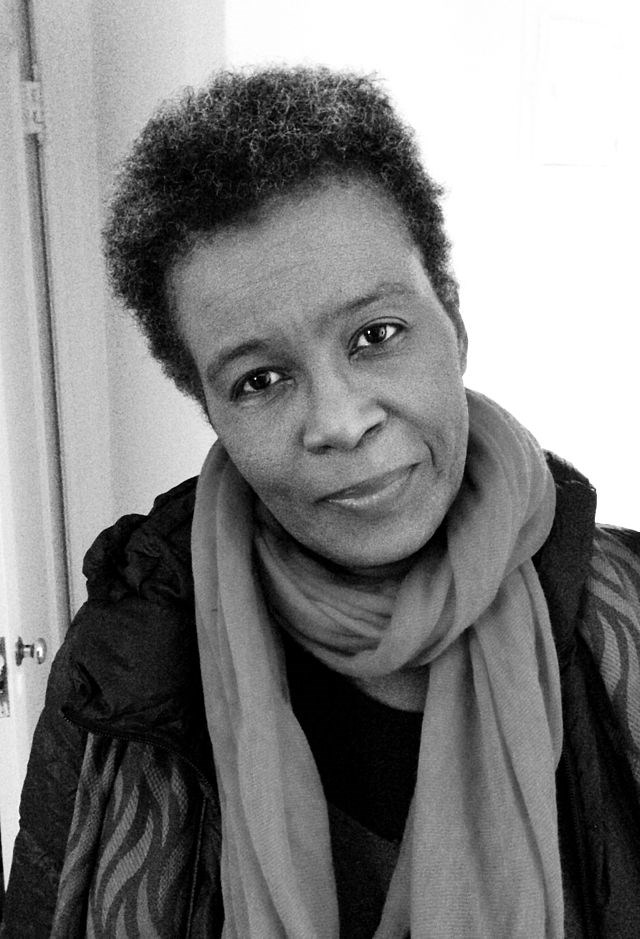
Citizen: An American Lyric by Claudia Rankine is required reading for every white American, just as James Baldwin's The Fire Next Time was and is. Black people should read for the pleasure of the beauty of the language and the subtler knowledge fine language brings, but they already know the contents of both books.
Their bitter truths have been inscribed upon the flesh of black and brown Americans who carry inside them the scar tissue from the essence of the arguments: people of color are not seen as people. If and when black people are recognized as bodies in proximity to whites, their presence often ignites in whites a terrible fear which just as often turns to violent hate.
White people annihilate black people with their stares, their language, their bodies pushing past and with their access to superior state-sponsored force. They call the police, the police arrive armed and furious on high alert, too pumped up on adrenaline and power, often, to diffuse any situation, if, indeed the situation needed diffusing to begin with; with impunity, they slam, bang, choke, handcuff, or worse, open fire.
All of this Baldwin understood in 1964, and Claudia Rankine, a woman, a college professor, and award-winning poet, documents now in 2015. Both are brilliant writers, it so happens, able at once to embody stark historical truths and the higher truth of moral power in their words. Both are angry, hurt, and deeply loving souls, or that is what their words reveal of them.

And I think, in this way, too, these works by Rankine and Baldwin represent the essence of the people of the color in this nation. White people are missing out on our humanity if we fail to recognize this hurt, this anger and this love. This, Rankine and Baldwin, and, I would guess, all people of color understand; it's only white people who don't get that our million daily minute and overt forms of racism keep us less than fully human. White people are captives of our own malaise; we are driven by a sickness that wounds.
Rankine, it happens, is a tennis player and tennis aficionado. She invades with her body the traditionally white upper class (protected) space of the tennis court. She is able to watch with the informed intelligence of those who know the game the careers of Venus and Serena Williams, who have been assaulted with racial slurs by white people, most notably, at the Indian Wells tournament, in 2001 (the memorable year of the World Trade Tower attacks and of the start of increasing, state-sponsored xenophobia in America) furious that zaftig black (alien) bodies should control the sanctified space of the heretofore white court.
Probably even worse than the verbal assaults from the yahoos in the stands, unnerving and unsettling, intended to make her err, are the many and repeated bad calls by racist umpires which actually take away from Serena points she won and cause her to lose matches.
"Every look, every comment, every bad call blossoms out of history, through her onto you. To understand is to see Serena as hemmed in as any other black body thrown against our American background."
Rankine goes to see a so-called trauma therapist, supposedly to find help dealing with her own internal bruises from being so often "thrown against our American background". When she finds the side gate to the therapy office is locked, she returns to the front of the house and rings the front bell. The trauma therapist, with whom she had an appointment pre-arranged by phone, opens the door and begins to "yell at the top of her voice, "Get away from my house. What are you doing in my yard?"
This stunningly written lean book is full of similar shocks. Moments when the white reader, if sentient, must be moved to exclaim "I can't believe it." The book is a lyric litany of times, over and over again, when reality ceases to matter and reason ceases to exist because the very darker color of the skin not only unleashes but condones the most extreme, the ugliest response. "And you are not the guy and still fit the description because there is only one guy who is always the guy fitting the description." And you are cuffed and mauled, made to stand naked, humiliated before being let go, or sometimes killed.
Why this persistent fear? We have to ask. Why this terror of the color of someone else's skin?
White America is afraid of its own history of conquest and ownership, even as we seek to replicate it over and over again, in other parts of the world, as well; we are afraid of the unboundariedness of our own actions, afraid of the out-of-control entitlement we've inherited and which we've been assured and reassured makes us better than every one else and every other nation on the earth.
We are afraid of our inevitable failure as a world power, and as individual powers, because lurking inside ourselves we know the lies we've told ourselves in order to justify our actions simply cannot be true. We are afraid of facing our duplicitous, rancorous and violent face in the mirror. Think slavery, lynchings, mass incarceration, the denigration of black motherhood and black families, the murders committed with impunity in the name of "law and order" or of "a new world order".
Rankine titles her book Citizen. It is a chronicle of her attempt to arrive at equilibrium in a nation that denies her exactly that.
It is also a challenge: if one wants to become a citizen of a democracy, if one wants to help create a community of shared governance among equals, where it currently fails to exist, then you need to submit to the experience inside this book—and ask yourself (if you are white) to answer for yourself, how might I begin to walk through every day acknowledging the rights and dignity of others (I've been told are) not like me, becoming aware of the pains I might inflict, and stopping and apologizing, and changing as I recognize each slight. How might I recreate myself as a free person in a free society?
Citizen comes as poetic declaration and as proclamation of human rights.



